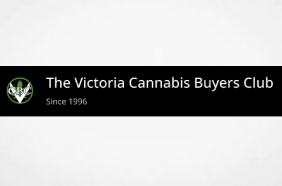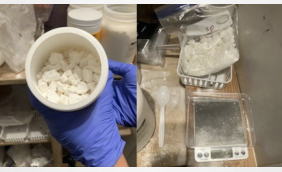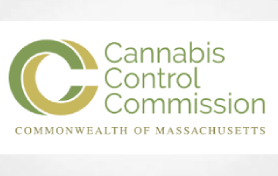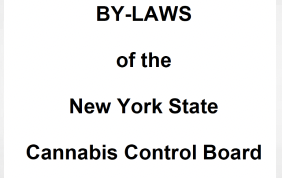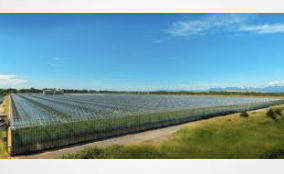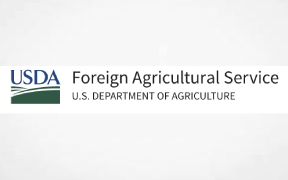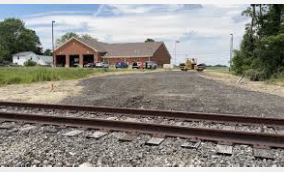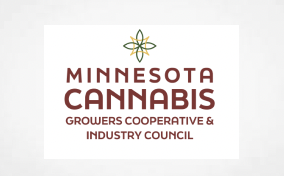They write at https://www.pca.state.mn.us/business-with-us/cannabis-businesses
The legalization of recreational cannabis in Minnesota in 2023 presents a unique opportunity to promote environmental compliance and sustainability within the industry. It is important for cannabis growers and processors to determine various environmental regulations and permits that may apply to their businesses.
Air emissions
Cannabis cultivation and processing can impact air quality through emissions of volatile organic compounds. Volatile organic compound emissions include terpenes and solvents like propane and butane used in processing concentrates. The cultivation and harvest of cannabis and the operation of fuel-fired boilers, furnaces, generators, and other equipment can also release air pollutants, including nitrogen oxides. Air quality impacts can be minimized by controlling volatile organic compound emissions and implementing strategies to reduce odor.
State permits
Whether you need an air permit will depend on your various processes and potential to create air emissions. An air permit should be obtained prior to beginning construction and is needed if potential air emissions exceed certain thresholds or if a facility is required to follow a federal New Source Performance Standard.
Calculate emissions from all activities occurring at the business. The very smallest facilities may qualify as insignificant facilities, which do not need a permit. Some process-focused calculators can help you to determine the facility’s potential and actual emissions. Potential emissions help identify if a facility needs a permit. Actual emissions will help identify the type of air permit you can qualify for by staying below permit limits.
Federal permits
Two types of federal rules, the National Emission Standards for Hazardous Air Pollutants and the New Source Performance Standards, can apply to cannabis businesses and activities. National Emission Standards for Hazardous Air Pollutants can apply regardless of whether a facility needs an air permit. New Source Performance Standards can impact whether a facility needs an air permit.
Stationary engines or generators used for emergency backup power, routine power generation, or even to help level out demand on the electrical grid may be subject to federal air quality regulations depending on size and how the engine is being used.
Air permit fees and due dates
| Permit fees | Application fee: $570+
Annual fee: by permit type and tons of pollution emitted |
| Permit issuance time |
60+ days after receiving a complete application
All permit types: |
| Emissions inventory reporting | April 1 |
| Compliance reports | Annual reports due by January 30
Semi-annual reports due by July 30 (3/28/2024)
|
Noise and odor
The MPCA is only involved in regulating noise or odor in some cases. Local governments typically address complaints about these issues. The MPCA is currently developing a new odor regulation.
Waste management
A waste is any material that can no longer be used for its original intended purpose. The cannabis industry generates various waste streams, some of which may be subject to specific regulations for solid waste and hazardous waste. Understanding these regulations is crucial for responsible waste management and avoiding potential compliance issues.
Cannabis waste disposal might have additional regulations due to its controlled substance status.
- See Minn. Stat § 4770.1200 for existing regulations on disposal of cannabis products.
- While the MPCA can advise on Minnesota regulations for cannabis waste management, the U.S. Drug Enforcement Administration has its own set of requirements.
Hazardous waste
While cannabis itself isn’t typically considered hazardous waste, its cultivation and processing can generate materials that pose threats to human health and the environment if not handled properly. The hazardous waste identification and management page contains information on managing specific types of hazardous waste including pesticides, cleaning solvents, vape pen batteries, and pharmaceutical waste.
You need a hazardous waste identification number if your business produces any amount of hazardous waste.
Businesses generating most types of hazardous waste are required to report annually, pay a fee, and obtain a license for the subsequent year. Facilities in Anoka, Carver, Dakota, Hennepin, Ramsey, Scott, or Washington County are licensed and inspected by their county. Facilities in Greater Minnesota are licensed and inspected by the MPCA. Facilities that produce only small amounts of hazardous waste can qualify as a very small quantity generator:
Hazardous waste fees and due dates
| Obtain a HWID | No cost |
| Waste reporting and license application | Due August 15 for Greater Minnesota businesses;
Twin Cities metro area businesses, contact your county. |
| Annual fee | Based on amount of waste reported for prior year and how the wastes were managed.
Mailed to license holders in first quarter, due date on invoice. |
Solid waste
Most cannabis waste, including trimmings, packaging materials, and used soil, can be considered solid waste and follows standard regulations. Composting is the preferred method for plant material, and reuse is recommended for cannabis soil. Any paper waste or designated plastics should be recycled. Visit the MPCA waste and recycling page for details.
Wastewater
Cannabis wastewater can contain cannabinoids (including THC), nutrients, solvents, and pathogens. Minnesota is developing regulations for the processing of wastewater generated by cannabis cultivation and processing facilities. While there are no state-specific regulations which focus on cannabis wastewater, general environmental regulations apply.
Disposal of THC-containing beverages should follow existing federal, state, and local waste disposal regulations. Consult your local wastewater treatment plant before using the sanitary sewer system.
Visit the MPCA’s wastewater permits webpage for additional information that may apply to your business.
Industrial stormwater
Any facility that has material, equipment, or activities exposed to rain, snow, or runoff should apply for an Industrial stormwater permit. Businesses that don’t have any materials, equipment, or activities exposed to the elements may qualify for the no-cost no-exposure certification and avoid the permit and fees. If you have only a few materials outside, consider moving them inside to qualify for no-exposure certification.
The need for an industrial stormwater permit depends on the business’s revenue-generating activities, expressed as narrative activities or SIC/NAICS codes.
While the cannabis industry is not specifically listed, some activities such as chemical manufacturing of medicinals and botanicals or food processing of essential oils and fats could apply to cannabis businesses.
Industrial stormwater general permit fees and due dates
| Permit fees | Application: $400
Annual: $400 |
| Annual reporting | March 31 |
| Quarterly sampling | January 21, April 21, July 21, and October 21 |
Water withdrawal
In Minnesota, a water use permit is required from the Minnesota Department of Natural Resources if a business withdraws more than 10,000 gallons of water per day or 1 million gallons per year for any non-domestic purpose. When reviewing applications, the Department of Natural Resources considers factors such as water source, withdrawal volume, potential resource impact, and the business’s conservation measures.
Water withdrawal permit fees and due dates
| Permit fees | Application fee: $150 Annual fee: based on use |
| Reporting | Due February 15. Water use fee is sent via the Minnesota Department of Natural Resources Permitting and Reporting System (MPARS) or U.S. Mail before you complete your annual water use report. |
Storage tanks
Minnesota regulates storage tanks used for petroleum or hazardous liquids. Aboveground tanks larger than 500 gallons and underground tanks larger than 110 gallons need to be registered with the MPCA.
Storage tanks permit fees and due dates
| Fees | No cost for tank notifications. |
| Notifications | Within 30 days of any changes to your tanks, including product change or status change.
UST: within 10 days of installation, closure, lining inspection, tanks, piping, dispensers |
| Record-keeping |
Beyond compliance
Cannabis businesses can operate successfully while minimizing their environmental impact. Here are some key practices to consider:
- Minimize hazardous waste: Identify areas where generating hazardous waste can be reduced. Follow regulations and dispose of waste properly to protect employees and the environment.
- Reduce and reuse: Choose eco-friendly packaging that uses minimal materials. Consider take-back and reuse programs for added sustainability.
- Plan ahead: Purchase only the pesticides and chemicals you need to avoid waste due to regulation changes.
- Minimize odors and volatile organic compound emissions: Implement odor control technologies like carbon filtration to reduce unwanted scents during cultivation.
- Maintain your system: Regularly inspect and service your solvent extraction equipment to prevent solvent leaks.
- Capture and reuse water: Indoor facilities can use water storage and recapture methods to reduce overall water use.
- Keep it clean: Prevent pollution by never dumping anything down storm drains, maintaining a clean property, and using dry absorbents for spills.
- Educate yourself: Stay informed of evolving regulations to ensure compliance.
- Get help: Partner with MPCA environmental experts for guidance on sustainable practices specific to your business.
By following these tips, your cannabis businesses can operate responsibly and contribute to a greener future.
